The Big Read: As tech titans converge in Singapore, can it truly become Asia’s Silicon Valley?
SINGAPORE — Twenty years was how long it took for the Bay Area of San Francisco to become Silicon Valley — the mecca of technopreneurship, as it is known today.
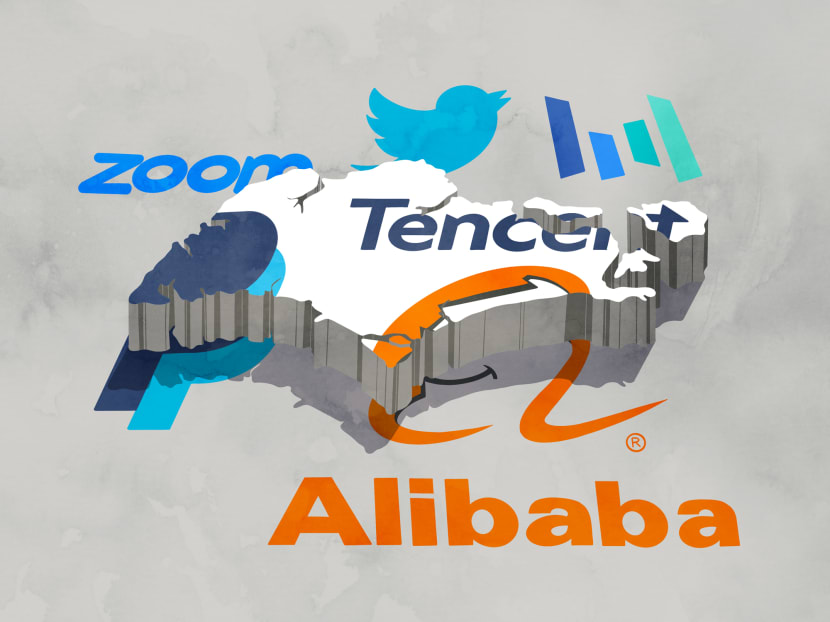
Singapore’s strong fundamentals, business-friendly reputation, and its strategic location in the heart of South-east Asia continue to make the Republic an attractive location for tech companies wanting to break into the region.
- An influx of the world’s top tech firms in recent months has refreshed Singapore’s hope to become another Silicon Valley
- Singapore’s strong fundamentals, business-friendly reputation, and its strategic location in the heart of Southeast Asia continue to make the Republic an attractive location for tech companies wanting to break into the region
- A key reason why they have come is Singapore’s neutrality in the tech conflict between the US and China, which is likely to persist in the new Biden administration
- But the current global crunch in tech talent will affect Singapore more because of its size, and could prove an impediment to the Republic’s dreams
- The inflow of tech multinationals will grant valuable opportunities for homegrown technology firms, but can also hinder their hiring of local talent
SINGAPORE — Twenty years was how long it took for the Bay Area of San Francisco to become Silicon Valley — the mecca of technopreneurship, as it is known today.
Beginning from the early 70s, free market economics and the rise of the internet transformed the region from an electronics hub into a de facto hotbed of the world’s tech talent and venture funds in the 1990s.
Twenty years was also the time it took for the planned economies of Shenzhen, Beijing and Shanghai to shed their “shanzhai” (Mandarin for mountain fortress) image of manufacturing poor quality knock-offs, evolving into a glittering hub where tech innovation thrives.
The common thread in the tale of these cities is human talent: Chinese tech entrepreneurs and venture capitalists, who were mostly educated in the United States, returned to China at the turn of the century with the dream to replicate “Silicon Valleys” in Shanghai, Beijing and Shenzhen.
Mr Li Jianggan, chief executive of venture builder firm Momentum Works, told TODAY: “Now, nobody mentions (this dream) anymore. The ecosystem in China has evolved to become very large, successful and with its own characteristics.”
Today, a similar transformation is happening to Singapore and the greater region of Southeast Asia, where the Republic serves as the hub, said Mr Li, a Singapore permanent resident who moved here from China in his teens.
Around 80 of the world’s top 100 technology firms have a sizable presence in the tiny island of Singapore. Many of them have been here for some time, including Google, IBM and Microsoft.
Those which have arrived or expanded their investments in recent months are among the fastest-growing firms from their respective tech hubs in the US and China — namely Zoom, Twitter, PayPal, Tencent, Alibaba, and ByteDance.
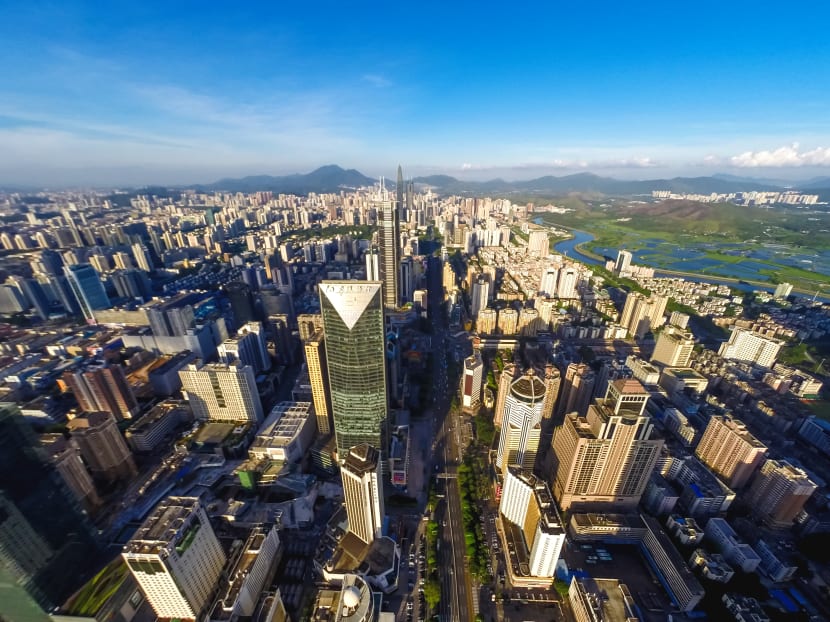
The influx of the tech firms is part of a bigger wave of investments flowing into the Republic amid the ongoing Covid-19 pandemic.
Foreign investment into Singapore last year shattered a 12-year record, with businesses committing investments totalling S$17.2 billion that are also expected to produce more than 19,000 jobs here, the Singapore Economic Development Board (EDB) said last month.
EDB executive vice-president Tan Kong Hwee told TODAY: “Despite the uncertain environment, companies from all over the world and across a range of industries continue to grow their operations in Singapore to serve Asia and international markets.”
He added that Singapore’s strong fundamentals, business-friendly reputation, and its strategic location in the heart of South-east Asia continue to make the Republic an attractive location for tech companies which wish to set up here to tap the opportunities in Asia.
And during unfavourable business conditions and difficult economic environments — the “tech cold war” between the US and China was most cited by experts speaking to TODAY — it’s Singapore’s strategy of pursuing business openness and innovation that is needed most.
Not only do these companies bring in their businesses, the wealth of their founders also follows suit, emulating how tech executives flooded into Silicon Valley in the 80s and 90s.
On Wednesday (Feb 3), the family office of Google co-founder Sergey Brin said it will be setting up a Singapore branch, joining other ultra high net worth individuals who have also done likewise, such as British inventor James Dyson and Ms Shu Ping, who co-founded Chinese hotpot chain Haidilao.
Singapore is also home to individuals such as Facebook co-founder Eduardo Saverin and Sea Group founder Forrest Li.
According to a survey by real estate consultancy Knight Frank last year, the country is expected to welcome around 30 per cent more of such individuals by 2024 than in 2019. These individuals are defined as people with net worths more than US$30 million (S$40.1 million).
Last year, a KPMG survey of global technology insiders placed Singapore at the top spot of the leading tech innovation hubs outside of San Francisco, beating cities such as London, Tel Aviv, Tokyo, New York and Shanghai, that ranked second to sixth in that order.
Mr Abe Smith, head of international at video-conferencing platform Zoom, told TODAY: “If Singapore is not already the Silicon Valley of Asia, then it definitely is very close to being so.”
But unlike the Americans and the Chinese, Singaporeans have no hinterland to tap for talent, and their appetite for bringing in foreigners to bolster industries has a demographic and social limit.
Businesses also come here to establish a beachhead in a growing regional market, but unlike a single country like China or the US, South-east Asia is made up of many varied players going through their own ups and downs.
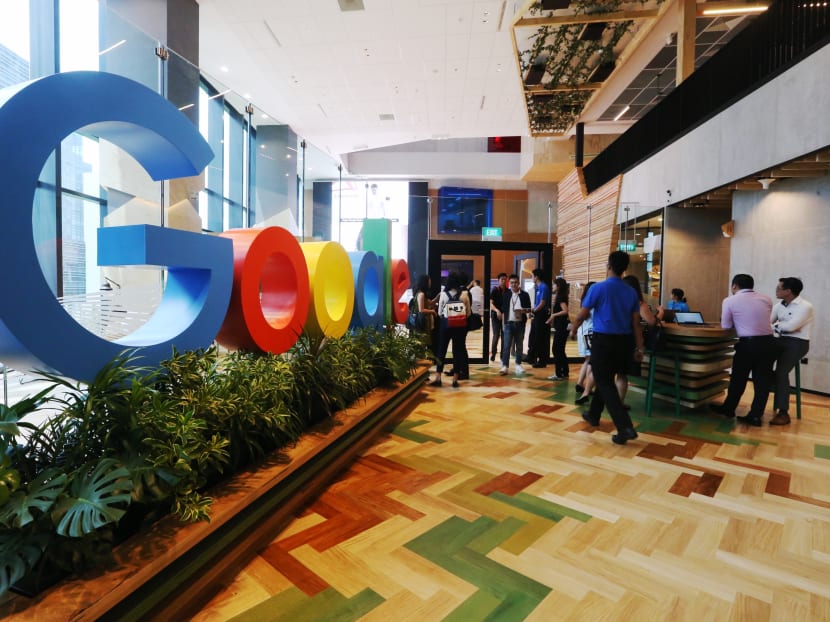
Will it take 20 years for Singapore to achieve its dreams too? Perhaps not, as the country charts a different path, said some business insiders.
Said Mr Li: “Singapore is already a cosmopolitan place in terms of tech firms, entrepreneurship and capital. It is unique and does not really need to benchmark itself against Silicon Valley.”
S’PORE’S COVID SILVER LINING
The pandemic may have slowed investor and business expansion momentum around the world, but global technology corporations have been booming in a time when digital interactions have replaced physical ones out of necessity.
One of the latest entrants into Singapore is artificial intelligence firm ByteDance, which owns short video app TikTok, and is ranked as the most valuable start-up in the world by analytics company CB Insights.
Last year, reports said the Chinese company plans to pump in billions into its Singapore investments, move out from its current coworking space and into a bigger 60,000 sq ft office in the Central Business District, and recruit hundreds of employees in Singapore over the next three years.
Asked why it decided to move here, a ByteDance spokesman said Singapore offers a business friendly environment that enables innovation to flourish.
“It is also geographically well-positioned, making it convenient for outreach to neighbouring markets,” said the spokesman.
Alibaba, the Chinese e-commerce conglomerate known for its charismatic co-founder Jack Ma, also raised eyebrows last year when it bought 50 per cent of the 50-storey AXA Tower office building in Shenton Way.
It is not Alibaba’s first foray into Singapore — in 2014, it bought a 10.35 per cent stake in SingPost and later raised its stake to 14.4 per cent, becoming the postal agency’s second-largest shareholder.
Homegrown e-commerce site Lazada was also acquired by Alibaba in 2016 for an eye-popping US$1 billion, which was then its biggest investment outside China until Alibaba’s AXA Tower transaction of US$1.2 billion.
An Alibaba spokesman told TODAY that Southeast Asia is key to its strategy. By 2036, it wants to serve two billion global consumers, enable 10 million businesses to be profitable, and create 100 million jobs worldwide.
“Singapore plays a key role in this plan. It serves as the headquarters for Lazada Group, the international headquarters for Alibaba Cloud, and the rest of the Alibaba ecosystem is also well-represented here,” said the company.
The pandemic has also seen e-commerce receipts rise across the board. According to a 2020 research by IBM, Covid-19 has accelerated the shift away from physical retail and towards online purchases by five years.
In Singapore, the coronavirus has also driven e-commerce growth, even though the digital economy that includes digital finance and banking shrank. The e-commerce sector boomed by 87 per cent to hit US$4 billion in gross merchandise value in 2020, based on the findings of Google, Temasek and Bain & Company.
The Alibaba spokesman said: “If anything, the pandemic has proven our commitment to Singapore and the region is meaningful. Our retail e-commerce marketplaces and B2B (business-to-business) platforms such as Lazada, Tmall Global, and Alibaba.com have played a crucial role in helping to bring onboard merchants and businesses onto their e-commerce platforms.
“Transitioning online has enabled them to widen their brand’s visibility and customer reach on a global level, particularly in the time (of Covid-19 lockdowns) when purchasing from physical stores was difficult and almost next to impossible.”
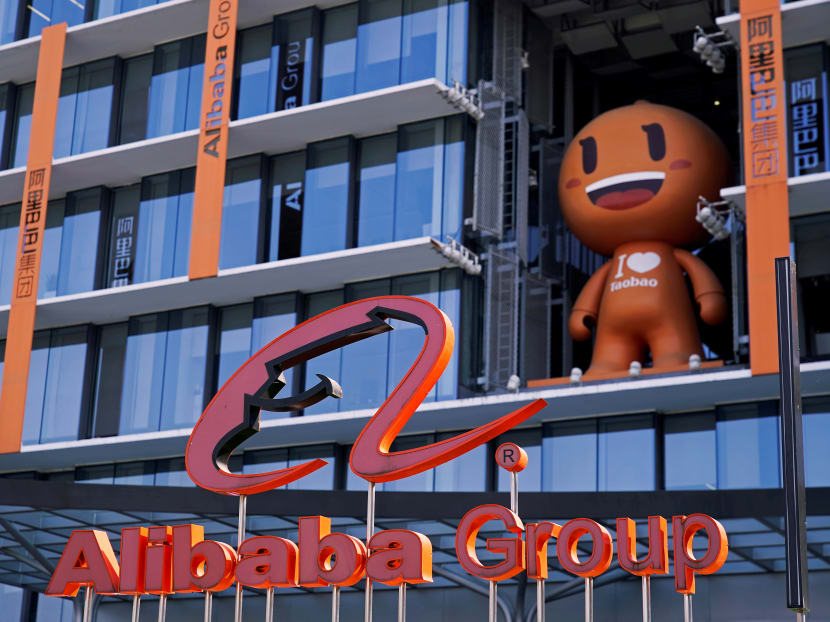
Behavioural change in a time of global Covid-19 lockdowns has also created new fortunes for pandemic winners like video-conferencing platform Zoom, which has hosted remote business meetings, family gatherings and online classrooms for more than 300 million users each day.
Between January and April last year, Zoom saw a 65 times increase in the number of free users in Singapore and also tripled its number of paying customers here. The island detected its first case of Covid-19 on Jan 23, 2020.
Since then, Zoom has announced its intention to build a research and development centre in Singapore which will hire hundreds of engineering staff, and also double the capacity of its data centre that has been here since 2019.
Zoom’s Mr Smith listed three reasons for their move — Singapore’s “exceptional” engineering talent base, its pro-business environment, and the fact that the country is already a tech hub.
“The nation also continues to be a favourite staging post for regional headquarters — evident not only by our own movements but by a slew of our peers in tech doing the exact same over the past year, proving that it is a perfect gateway for engaging the wider Asia-Pacific region,” he said.
Till today, the Bay Area is regarded as the global centre of innovation, despite it becoming trendy in recent years for industry watchers to wonder if there will be a tech exodus from Silicon Valley due to the growing competition from other cities within and outside the US, as well as the rising costs of living and business there.
Fewer than four in 10 respondents (37 per cent) in KPMG’s 2020 survey of tech leaders believed that it is likely the tech innovation centre of the world will move from Silicon Valley to elsewhere. This is a decrease from the 58 per cent who believed that innovation will flow out from the area in its 2019 poll.
The study’s researchers concluded that this change of opinion was because of the US’ recent protectionist policies for critical emerging technologies, which meant that technologies and intellectual property (IP) are not flowing across borders as freely as they did before.
“By keeping more proprietary knowledge and IP within the US, it will be even harder for a city outside the US to overtake Silicon Valley as the innovation centre in the next four years,” said the study.
For Singapore, there is one reason for the recent influx of tech firms that these companies are not saying — at least not publicly. The battle of technological supremacy between the US and China has also sharpened the importance of neutrality for these companies, said business analysts.
Amid the ongoing tech war, the standout consideration for a regional base is geopolitical neutrality, said Associate Professor Lawrence Loh from the National University of Singapore Business School.
“Singapore offers a safe bastion that is not encumbered by the fluid nature of developments in the global tech war,” said Assoc Prof Loh.
Mr Leon Perera, chief executive officer of Spire Research and Consulting, said: “There are not many strong competing hubs in the region. Hong Kong has faced its fair share of issues. Locations in China, like Shanghai, face restrictions on access to some US social media platforms, which would be a consideration.”
In the Association of Southeast Asian Nations (Asean), Singapore stands out against competing hubs for various reasons — ease of access to English-speaking manpower, connectivity, strong government incentives and support, said Mr Perera.
Maybank Kim Eng economist Chua Hak Bin added: “Singapore’s neutrality in the US-China trade conflict and tech rivalry is drawing in tech multinational companies, including those from China.”
Chinese tech companies are partly attracted to Singapore because they can conduct business with fewer obstacles caused by politics and sanctions, said Dr Chua.
The revocation of Hong Kong’s special legal and economic status by the US last year has also enhanced Singapore’s global hub status because the special administration region is seen as losing its autonomy and independence, added the economist.
“The reconfiguration of manufacturing supply chains away from China and towards Asean will also attract more MNCs to expand in Singapore to be closer to their production networks,” Dr Chua said, noting that the current Joe Biden administration is unlikely to signal an end to the US-China rivalry.
Mr Jacob Doo, chief investment officer of Envysion Wealth Management, said that Singapore’s tech hub status is catching on because sovereign wealth funds, such as Temasek Holdings, are investing in companies focused on quantum computing and artificial intelligence.
“While Singapore’s tech scene takes off, high net worth founders may look at their home countries, which have problems that will not be resolved anytime soon,” said Mr Doo.
“The pandemic has shown not only the inadequacies of medical facilities in a number of countries, but also the failure to plan and manage this crisis in a holistic way.”
Mr Doo further pointed out that if one were to look at the number of doctorates in the US, they would see a high concentration in social sciences PhDs. In Asia, especially China, the proportion of tech and science PhDs outweighs the US by three times.
He said: “Singapore offers direct access and proximity to this talent and innovation, and the opportunities and the extensive development in Asia is beyond what is available in Europe and the US. Singapore therefore offers the near perfect package.”
WHAT TECH TITANS BRING TO S’PORE
Momentum Works’ Mr Li noted that besides American and Chinese firms, there is also the growing presence in Singapore of tech companies and capital from other parts of the world, such as Japan’s Softbank and South Korea’s Samsung.
Many Chinese technopreneurs who have decided to “exit” China for various reasons are also investing actively in Singaporean companies directly or through venture capitalist funds, he added.
“The broader region of Southeast Asia and Asia-Pacific in general is getting more attention for global tech firms, and Singapore is in a very good 'hub' position to attract them.... We have seen Japanese, Russians, Koreans and Germans — the mingling of different capital sources and experiences make Singapore truly an exciting place to be at the moment,” said Mr Li.
When tech multinational corporations (MNCs) come here, they bring along capital to invest in Singapore's tech companies as well as experienced professionals that can help local and regional companies grow much faster.
One example is Sea Group, founded in 2009 in Singapore, which arguably benefitted from the resources and experience of its early backer Tencent, said Mr Li.
The group has three core outfits: Video games, e-commerce, and fintech. Sea owns Garena, the largest game developer in Southeast Asia. It also operates the region’s largest online shopping platform Shopee and digital financial service SeaMoney.
Since the pandemic, Sea has become the best-performing stock in the world, and in terms of size, has become larger than DBS Group, according to The Business Times.
With these factors drawing tech MNCs to Singapore, their concentration could snowball into highly resilient innovation hubs.
Part of the reason for Silicon Valley’s resilience is the fact that an early concentration of tech companies became a draw for global talent, who may later on create their own companies within the Valley, thus creating a reinforcing circle of innovation and talent.
If Singapore can achieve a saturation of tech firms here, it will be well-placed to attract technical talent as well, said Professor Boh Wai Fong, deputy dean of Nanyang Business School at the Nanyang Technological University (NTU).
“The job market for the tech industry is highly competitive with more and more computer science majors and courses available in public and private institutions.
“Having a saturation of tech firms keeps the field competitive and makes it difficult for any one company to hold a monopoly. It also attracts more tech firms to locate in Singapore,” said Prof Boh.
And when international giants establish their footprints here, there are positive ripple effects to Singapore businesses that work with these companies, said EDB’s Mr Tan.
An example of how MNCs and local companies complement each other to develop new products and solutions for Singapore is the SAP iO Foundry Singapore Accelerator — an early-stage venture arm of German software company SAP.
Facebook also has a start-up accelerator with the Infocomm Media Development Authority, which guides and gives expert access to Singapore tech founders, helping them build skills and experience.
“A robust tech ecosystem and skilled digital workforce can in turn create business and growth opportunities for local companies here,” said Mr Tan.
“MNCs have also been supporting local enterprises to embark on their digitalisation journey, as seen in partnerships such as the Google and UOB SME (small and medium enterprises) Leadership Academy and PayPal’s SME Business Challenge,” he said.
The SME Leadership Academy, launched in 2019, trains business leaders to help SMEs digitalise and become more competitive in the digital economy, according to Google.
It aims to help 4,000 SMEs by the end of this year, a tenfold increase from the programme’s original goals in response to the pandemic.
Google even revised the curriculum last year to focus on retail, food and beverage, and tourism — sectors most affected by the pandemic.
EDB emphasised that many technology MNCs have also embarked on training efforts that reach out directly to Singaporeans.
In October last year, Grab and Microsoft partnered to launch three training and development programmes to help Singaporean participants secure IT-related job opportunities.
Up to 5,000 Grab drivers and delivery workers as well as 250 university students are expected to benefit from this programme by the end of this year.
Chinese companies are also chipping in. Alibaba based its first joint research institute outside of China with NTU in February 2018 “to explore technology-driven solutions to societal issues in areas such as health, ageing, homes and communities”.
It also has a scholarship programme in Singapore to sponsor local PhD candidates in fields related to computer science, giving them access to Alibaba’s research projects here and in China.
Said the Alibaba spokesperson: “Perhaps more importantly, investing in Singapore aligns with our mission ‘To Make It Easy to Do Business Anywhere’. Having an established presence here means it’s easier for us to help and support local businesses to grow beyond Singapore’s shores and especially into the vast China market.”
Added EDB's Mr Tan: “With the acceleration of digitalisation due to Covid-19, digital skills will continue to be in demand… These (initiatives) present opportunities for our people to upgrade and keep themselves relevant in a job market that increasingly requires digital skills.”
OBSTACLES TO S’PORE’S AMBITIONS
By 2030, there could be a shortage of 4.3 million tech workers worldwide, according to a study by management consulting company Korn Ferry.
The same 2018 study predicted that the labour shortage for Singapore’s financial and business services sector in 2030 could mean an unrealised economic growth of as high as US$29.2 billion.
That potentially represents around 21 per cent of Singapore’s projected economy in 2030, the study concluded.
Experts said the tech talent crunch is neither a new issue, nor is it one faced by Singapore alone. But a labour crunch in Singapore could be more severe than other nations due to its size.
Minister-in-charge of the Smart Nation Initiative Vivian Balakrishnan said in June last year that the infocommunications sector, which employed around 200,000 professionals, will need another 60,000 workers by 2023.
Yet, Singapore’s education systems produce only around 2,800 infocomm graduates yearly, said Dr Balakrishnan then.
Momentum Works’ Mr Li said: “Singaporeans do not lack the skills or experience — in fact many of the successful early tech stars and venture capitalists in China are Singaporeans. What is lacking is enough talent with the right skills, experience and desire.
“Cities in larger countries like Shanghai, New York or Ho Chi Minh City draw talent from a large hinterland, while Singapore has a limited pool due to its relatively small population, and the demand for top-notch tech talent is very high.”
To address a supply gap of tech talent, Singapore’s strategy is to buttress its skills training efforts under the SkillsFuture movement as well as to encourage mid-career switches for people willing to enter the tech industry.
But an external supply of talent will still be necessary. The authorities launched a new type of work pass aimed at attracting the pinnacle of international tech talent.
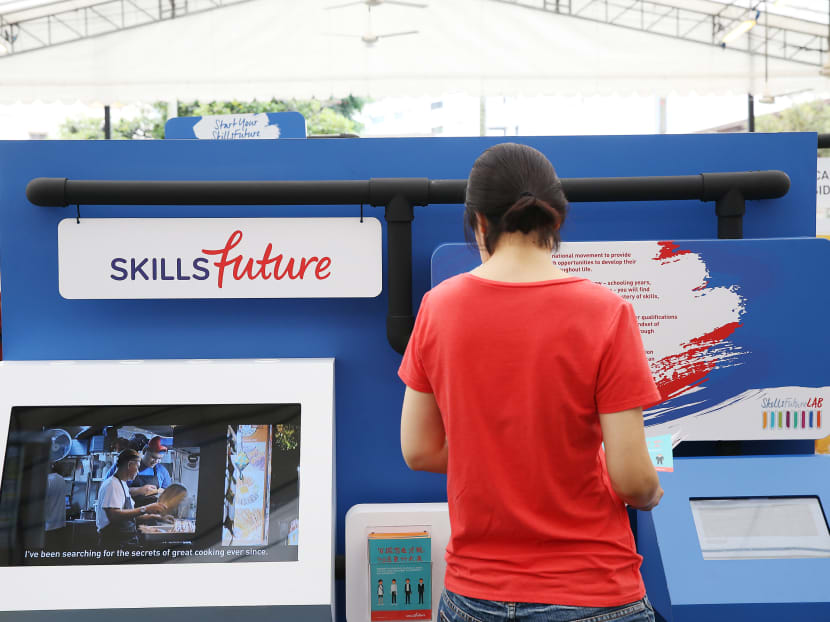
The pilot for the new Tech.Pass began last month for up to 500 places. Tech.Pass holders can work across different companies or start-up companies in Singapore without the traditional restrictions of the Employment Pass.
Existing employment passes require the applicant to be employed by a particular company, something which would disqualify people such as Facebook’s Mark Zuckerberg or Microsoft’s Bill Gates if they applied when their companies were still starting up.
Singapore’s openness to foreign hires has been an attractive feature for tech MNCs.
“The ability to hire diverse manpower that can support regional operations is also key,” said Mr Perera from Spire. “As far as talent is concerned, Singapore has a fairly liberal employment pass regime compared to most other countries in the region.”
Nevertheless, there is an increasing concern by foreign businesses that Singapore may become less welcoming to foreign workers, said experts. They pointed to perceptions held by some that certain foreign companies prefer to hire people from their home countries instead of Singaporeans.
To address these concerns, the Government is investigating more cases of discriminatory hiring practices that favour foreign hires unfairly.
It suspended 90 employers’ work pass privileges as of last August, effectively barring them from hiring new foreigners or renewing work passes. This was an increase from the 35 employers punished for the whole of 2019.
Zoom’s Mr Smith said: “The Singapore Government has also launched several tech-focused graduate programmes to produce local tech talent.... At Zoom, we are always looking locally first, with the team comprising mostly Singaporeans — we only look at foreign talent when specific short-in-supply capabilities and skills are required.”
Asked about the talent crunch, Alibaba said this is why it is critical for firms tapping into Singapore’s talent pool “to also give back and grow the talent base here even further”.
ByteDance also said it is committed to “deepening the pool of local talent and upskilling the local workforce through on-the-job training”, and said it would seek a balance when hiring global and local talents here.
Yet, while the arrival of tech MNCs heralds business opportunities for local firms and enables Singaporeans to pick up valuable tech skills and working experience, experts said that it is inevitable for some local companies to feel the pressure.
A chief source of anxiety for local tech businesses is the competition to hire local talents, since many skilled local undergraduates and even mid-career switchers would want to work for the brand-name companies before considering Singapore start-ups.
The same applies for less well-known MNCs that enter the Singapore market.
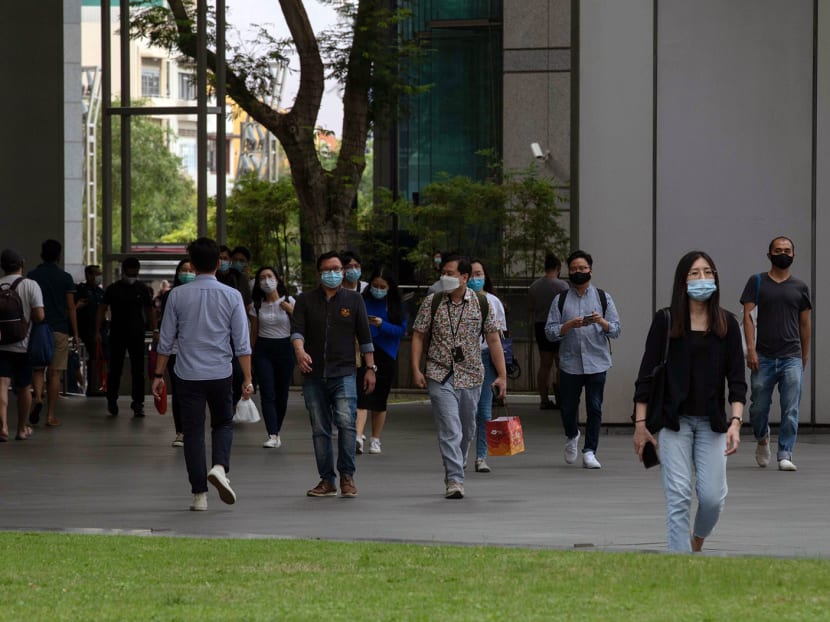
Mr Li said: “Relatively unknown companies, even if they are big in their home countries or regions, often struggle here because the good tech talent here have other, more reputable, choices. Similarly, home-grown start-ups suffer as well because good tech talent would often prefer to work for Google rather than a risky start-up.”
Speaking to TODAY, some tech company bosses said it is not unheard of for staff who were working with MNCs on inhouse projects to “jump ship” after the undertaking ends.
Others said they are sometimes unable to hire the right people because they could not match the salaries offered by these MNCs, thus hindering their ability to grow.
One company executive, who spoke to TODAY on condition of anonymity as his tech start-up currently works with MNCs, said that the influx of MNCs will make it difficult for local tech firms to hire, though the manpower situation is not a case of feast or famine.
He said: “Skilled talent is always a scarce resource which we have to compete tooth and nail for, and we are on the back foot (compared with MNCs). But on balance, the business opportunities, exposure to investors and experience gained from working with larger companies is invaluable for us.
“Our route in this competitive tech ecosystem is to become more manpower-lean and to skill-up the staff that we have,” he added.
Momentum Work’s Mr Li highlighted that another problem affecting Singapore’s talent base is the existence of zombie tech firms — those which are no longer competitive but are somehow still kept afloat. “Some of them hold onto some tech talent who should become much more productive elsewhere,” he said.
NTU’s Prof Boh felt that local entrepreneurs should see the influx of US and China firms “as a way to spruce up the competition and to improve the overall technical capability of the industry”.
But while Singapore might be a tech hub in Southeast Asia for now, there is still some way to go before it can be considered the Silicon Valley of Asia, she said. The main headquarters of these tech firms, or where the core research and development occurs, remain abroad.
“Moreover, Singapore has a few of its own home-grown tech giants, but there are (so) few of them and they pale in comparison to other Asian tech giants like Alibaba and Tencent,” said Prof Boh.
“For Singapore to become the Silicon Valley of Asia, we will need to host not only a plethora of tech companies, but the best of the best leaders of the industry that will continue to push the industry to greater heights,” she said.











